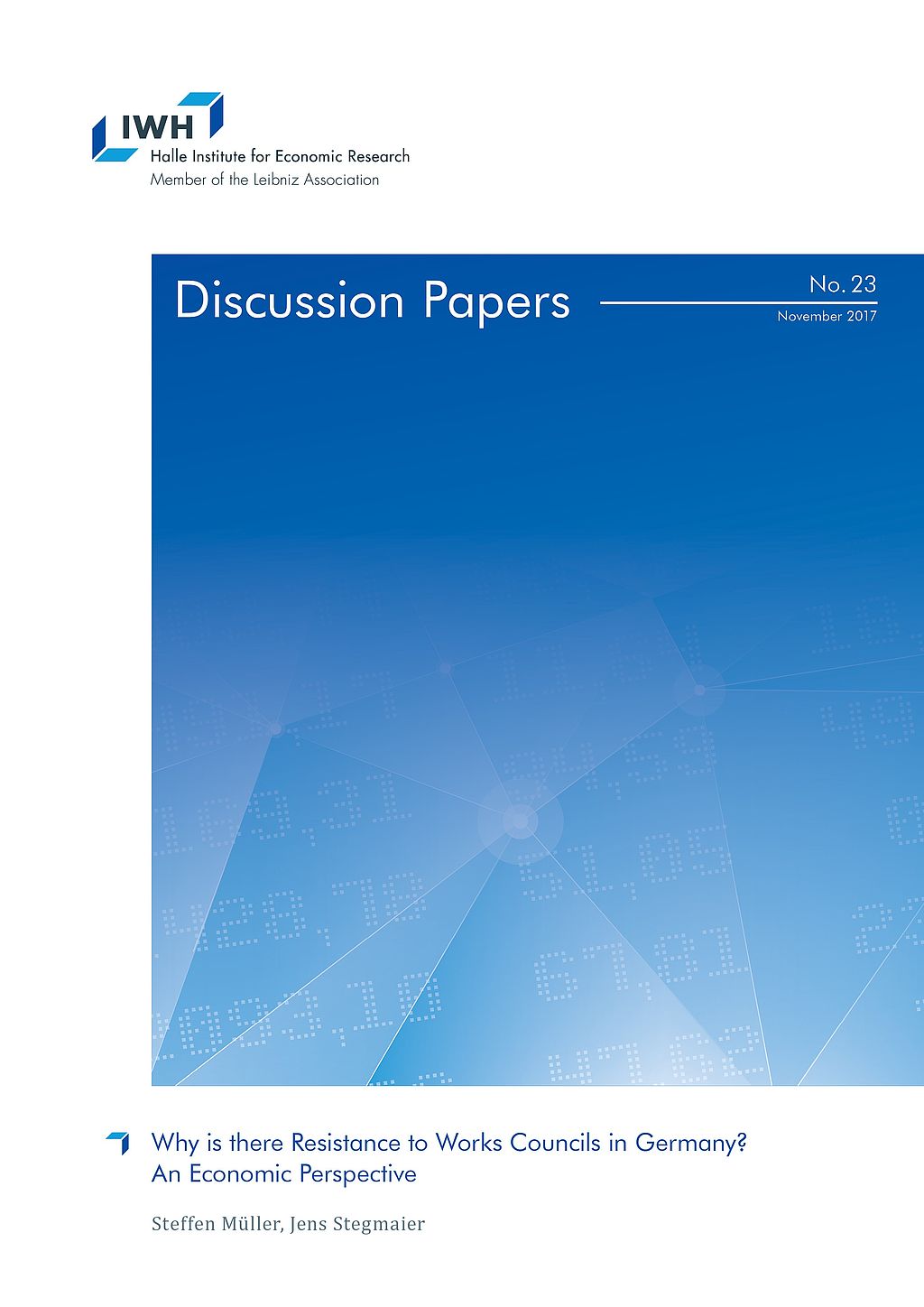The resistance of employers against works councils
Works councils enjoy many information, consultation and participation rights, which expand with increasing firm size. However: less than 10% of all establishments that meet the legal requirements for having a works council actually have one. Although these firms actually employ more than 40% of German employees, there are a large number of workers for which staff participation would be possible, but who nevertheless don’t have one. Employers sometimes argue about the economic disadvantages to explain their reservations, although research shows that works councils do at first offer a number of productivity-increasing benefits:
Through the information and participation rights of the works councils, employees have the opportunity to communicate criticism to the firm management without having to fear sanctions. “This is both a valuable source of information for the management and a motivation driver for the workforce,” explains author Steffen Müller, Head of the Department Structural Change and Productivity at IWH. Participation thereby leads to less fluctuation of staff and increased job satisfaction – which ultimately manifests itself through an increase in productivity. Central to the question of resistance on the part of the employer, however, is the effect on wages and profits. Although wages are higher in codetermined enterprises, research has also shown that while the wage increase reduces employers’ gains from increased productivity, such employers still make higher profits as long as they simultaneously pay according to collective agreements.
So why is there resistance? “Many small and medium-sized firms with up to 100 employees actually do not profit economically from staff participation. At the same time, however, such firms actually represent the majority in most employers’ associations. In the case of Gesamtmetall, for example, they make up 70% of the members,” says Müller. Since in most associations, each member firm enjoys the same voting rights, small and medium-sized enterprises can also constitute the majority when it comes to voting. This can explain what might seem paradoxical at first: that for economic reasons, employers’ associations argue against a generally efficiency-enhancing labour market institution.
Whom to contact
For Researchers

Department Head
If you have any further questions please contact me.
+49 345 7753-708 Request per E-MailFor Journalists

Head of Public Relations
If you have any further questions please contact me.
+49 345 7753-720 Request per E-MailIWH list of experts
The IWH list of experts provides an overview of IWH research topics and the researchers and scientists in these areas. The relevant experts for the topics listed there can be reached for questions as usual through the IWH Press Office.
Related Publications

Why is there Resistance to Works Councils in Germany? An Economic Perspective
in: IWH Discussion Papers,
23,
2017
published in: Economic and Industrial Democracy
Abstract
Recent empirical research generally finds evidence of positive economic effects of works councils, for example with regard to productivity and – with some limitations – to profits. This makes it necessary to explain why employers’ associations have reservations against works councils. On the basis of an in-depth literature analysis, we show that beyond the generally positive findings, there are important heterogeneities in the impact of works councils. We argue that those groups of employers that tend to benefit little from employee participation in terms of productivity and profits may well be important enough to shape the agenda of their employers’ organisation and even gained in importance within their organisations in recent years. We also discuss the role of deviations from profit-maximising behaviour like risk aversion, short-term profit maximisation, and other non-pecuniary motives, as possible reasons for employer resistance.

Warum gibt es Widerstand gegen Betriebsräte?
in: Wirtschaft im Wandel, 2, 2018
Abstract
Die jüngere ökonomische Forschung stellt der betrieblichen Mitbestimmung z. B. im Hinblick auf ihre Effekte auf Produktivität, Löhne und Gewinne insgesamt ein positives Zeugnis aus. Dies macht den Widerstand von Arbeitgebern gegen Betriebsräte erklärungsbedürftig. Da Mitbestimmung die unternehmerische Freiheit einschränkt, wird vielfach vermutet, dass Arbeitgeber bereit sein könnten, positive Effekte der Mitbestimmung im Gegenzug für größere Handlungsspielräume zu opfern. Unser Beitrag zeigt auf Basis einer Literaturauswertung, dass, jenseits der durchschnittlich positiven Beurteilung durch die Forschung, Mitbestimmung in vielen Betrieben keine positiven ökonomischen Folgen hat. Da das Gewicht solcher Betriebe in den Arbeitgeberverbänden stark ist, kann die ablehnende Haltung der Arbeitgeberverbände auch aus profitmaximierendem Kalkül seiner Mitglieder erklärt werden.



